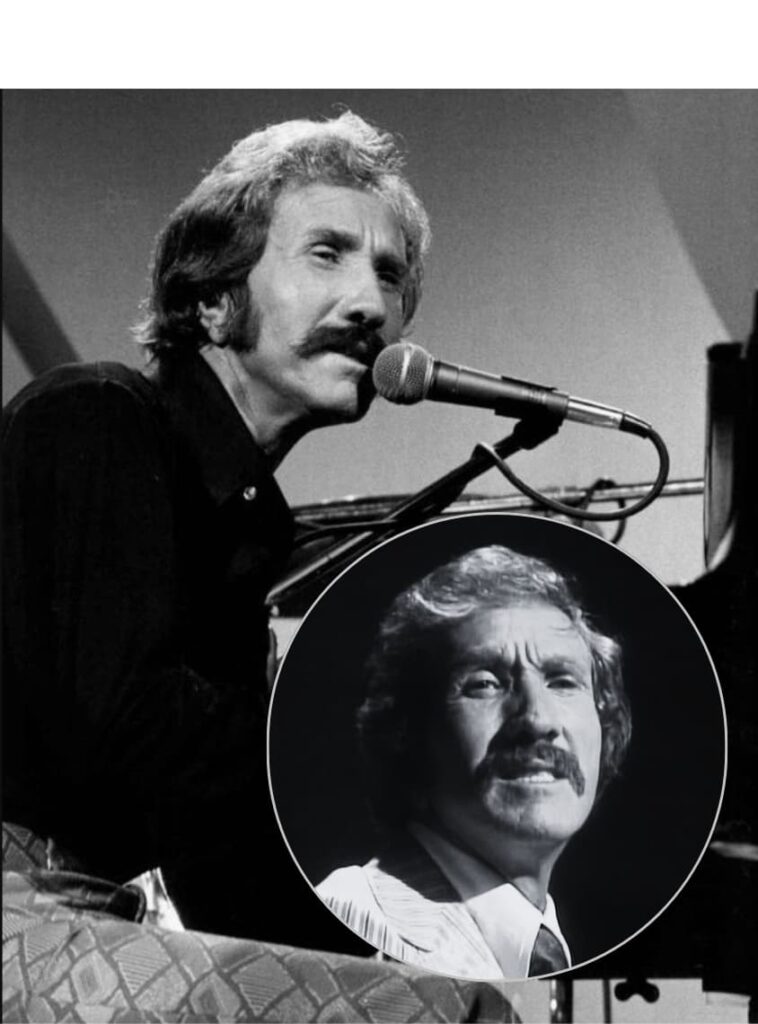
A Lonesome Journey Through the Heartbreak of Solitude
Ah, Marty Robbins. Just hearing that name conjures up images of wide-open spaces, dusty trails, and heartfelt melodies that spoke directly to the soul. He was a troubadour in the truest sense, a storyteller who could transport you with every note, whether it was a gunfighter ballad or a tender love song. And among his vast repertoire, a particular gem stands out for its quiet, poignant beauty: “I Walk Alone.”
Released in 1968, “I Walk Alone” found its way into the hearts of many, climbing to the No. 1 spot on the Billboard Country chart, becoming Marty Robbins’ thirteenth chart-topper. It also made a respectable showing on the pop charts, reaching No. 65 on the Billboard Hot 100. The song was the title track of his 1968 album, I Walk Alone, an album that itself peaked at No. 2 on Billboard magazine’s country album chart and remained there for a remarkable 26 weeks. This wasn’t just another hit; it was a deeply resonant piece that cemented his place as a master of reflective country music.
The story behind “I Walk Alone” isn’t one of dramatic events or grand gestures, but rather the quiet, universal ache of separation. While Marty Robbins was a prolific songwriter himself, this particular tune was penned by Herbert Wilson. Its enduring power lies in its simplicity and raw emotion. It’s a song that speaks to the profound solitude one feels when a loved one is absent, a solitude that isn’t chosen but imposed by circumstances.
The meaning of “I Walk Alone” is etched plainly in its title and its melancholic verses. It’s the lament of a devoted heart, left to wander familiar paths now empty of the cherished presence of another. “I walk alone, where once we wandered,” the lyrics confess, immediately drawing the listener into a world colored by wistful memories. It’s a promise of unwavering fidelity, a vow that despite the distance and the loneliness, the singer’s love remains true: “Till you return, I’ll stay the same, dear. I’ll still be true, and walk alone.” This isn’t a song of despair, but rather one of enduring hope and steadfast loyalty, a quiet pledge to wait, no matter how long the separation. It evokes that feeling we’ve all known, perhaps in our younger days, of pining for someone far away, clinging to the hope of their return. It’s a testament to a love so strong that even in absence, it dictates the very rhythm of one’s existence.
Marty Robbins’ delivery of “I Walk Alone” is, as always, impeccable. His voice, with its smooth, baritone timbre, carries the weight of the lyrics with an understated elegance. There’s no histrionics, just a genuine, heartfelt performance that draws you in. He plays piano on the track, adding to its intimate feel, while Bill Pursell’s organ and Jerry Kennedy’s guitar provide a subtle yet moving backdrop. This musical restraint allows the emotional core of the song to shine through, making it all the more impactful.
For many of us who remember those times, “I Walk Alone” is more than just a song; it’s a doorway to a different era. It harks back to a time when country music wasn’t just about catchy tunes, but about profound narratives that mirrored the human experience. It was the soundtrack to countless quiet evenings, a comforting presence during moments of introspection, or a gentle reminder of loves lost and longed for. It’s a timeless melody that resonates with the quiet strength of devotion, a poignant reminder that even in solitude, love can burn brightly, a beacon guiding the way home. In a world that often seems to rush by, “I Walk Alone” offers a precious moment to pause, to reflect, and to remember the enduring power of the human heart.